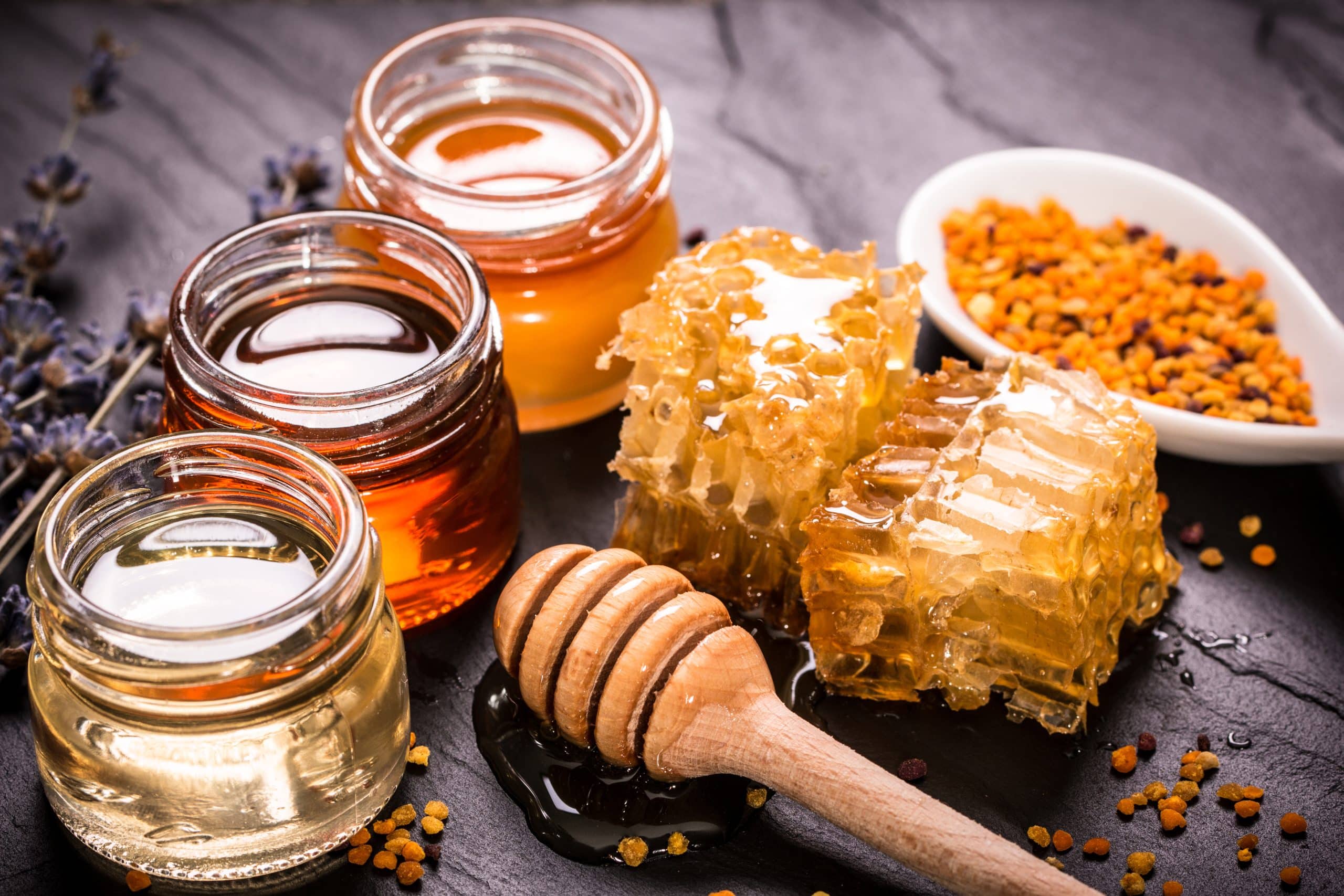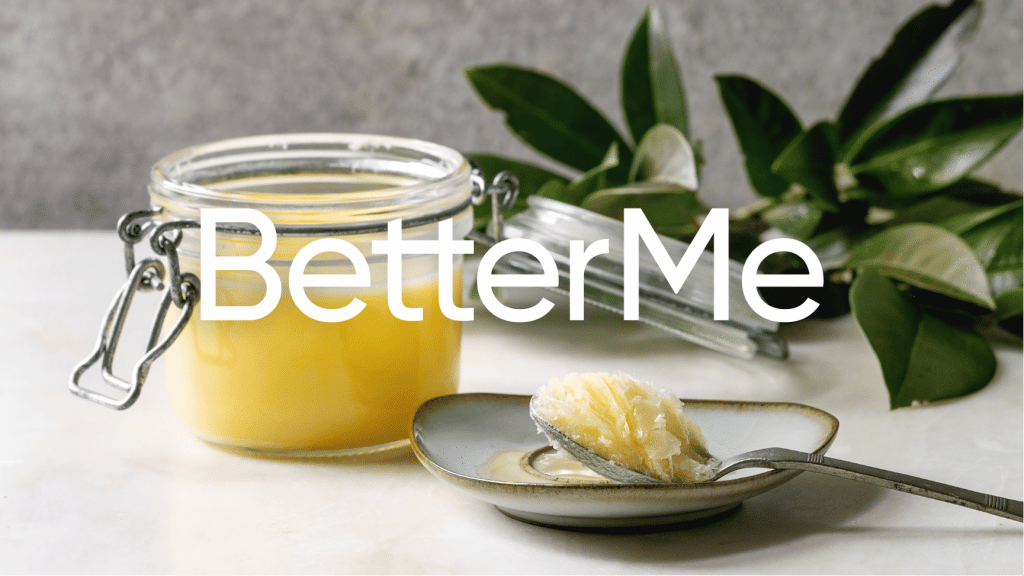Sweet, syrupy, and a natural sweetener – honey is a pantry staple for many households. It’s used in baking, as an alternative to table sugar, and as an ingredient in many sauces. Not to mention, it’s a great addition to warm drinks and smoothies. But for those of us with gluten intolerances, is honey an acceptable substitute? The answer is, it depends. With so many types of honey out there, it’s hard to say whether all types are gluten-free. In this article, we’ll review how honey is made, different types of honey, and which ones are gluten-free.
How Honey Is Made
Honey is the result of bees collecting nectar from flowers and mixing it with enzymes in their stomach. This process helps to break down the nectar and produces the sugary liquid that we know as honey.
The honey is stored in hexagonal wax cells, which bees build in their hive. When enough cells are full of honey, the beekeeper will extract it from the comb and bottle it for sale.
The type of honey that you buy in the store all depends on the beekeeper and what sort of flowers they target for their bees. Depending on the flowers, some honey may be lighter in color with a mild flavor, while others may be darker and more intense.
The process of extracting honey from the hive and bottling it for sale is a form of processing. This means that some honey may pass through treatments like pasteurization, filtration, and adding sugar or other additives.
What processing does a honey have to go through before it can be labeled as gluten-free? Let’s take a look.
Read More: Lavender Honey Lemonade Recipe – How To Make The Perfect Summer And Spring Beverage
Types Of Honey And Gluten-Free Status
Raw honey is the most natural form of honey, as it has not been processed or heated in any way. This type of honey is the closest to its natural state and, as it has not been altered in any way, it is generally considered gluten-free.
That said, some store-bought honey may not be gluten-free.
Some manufacturers process their honey to give it a better appearance and taste, or make it into honey-based sauces or dressings, which may involve adding sugar or other additives. As such, it’s best to check the label to make sure that no gluten-containing ingredients have been added.
The same goes for flavored and colored honey, as these varieties often contain added ingredients that may not be gluten-free.
How To Find Gluten-Free Honey
Finding gluten-free honey can be a tricky task. Fortunately, there are ways to ensure that the honey you buy is gluten-free. Here are a few things you’ll want to consider:
Whether The Honey Was Mass Produced
Cross-contamination is an actual concern for people with gluten sensitivity. Even the smallest amounts (often labeled as “trace”) can cause a reaction. Mass production poses an even greater risk, as it increases the likelihood of cross-contamination.
Honey may be packed in a facility that also handles wheat products, which means there’s a chance of cross-contamination. Furthermore, it could be processed using the same machinery. As food processing equipment isn’t easy to clean, this poses an even greater risk.
In cases like these, it’s best to opt for honey that is produced and packed on a small-scale. Ask your local beekeeper, look for organic or raw honey, or opt for brands that label their products as gluten-free.
Whether It’s Flavored, Colored Or Pasteurized
To improve the appearance and taste of honey, some beekeepers may choose to add ingredients like sugar or flavors.
Common additives that may not be gluten-free include barley malt, bran, wheat germ, and oats. While these additives aren’t added in large amounts, they can still cause a reaction in people with gluten sensitivity.
The same goes for honey that has been flavored, colored, or pasteurized, as these treatments often involve adding ingredients that may contain gluten.
To make sure your honey is safe, check the label for any gluten-containing ingredients, and check the allergen list. If the label does not list any, then it’s likely gluten-free.
BetterMe app is a foolproof way to go from zero to a weight loss hero in a safe and sustainable way! What are you waiting for? Start transforming your body now!
Are Honey-Based Products Gluten-Free?
Honey-based products, such as honeycomb candy and honey cake, may or may not be gluten-free.
While the honey is likely to be gluten-free, other ingredients may contain gluten. To ensure that a product is safe for those with gluten sensitivity, check the label for any gluten-containing ingredients, as well as the allergen list. If it does not list any, then it’s likely gluten-free.
How To Tell If Honey Is Gluten-Free
The Food and Drug Administration (FDA) requires that food labels list all ingredients, but even if a product doesn’t include a gluten-containing ingredient, that doesn’t rule out the possibility of cross-contamination (4).
Having products tested and labeled as gluten-free is voluntary, and not all manufacturers will opt to do so.
If you can’t find a gluten-free label on the honey you’re buying, it’s best to contact the manufacturer and ask about their manufacturing process. This can help give you a better idea of whether their honey is safe for people with gluten sensitivity.
Going local is one of the best ways to make sure your honey is gluten-free. Ask your local beekeeper directly if they can be confident that there won’t be any cross-contamination.
When in doubt, choose a product that is certified and labeled gluten-free.
Does Gluten-Free Honey Have Health Benefits?
Yes, gluten-free honey may have health benefits. While still primarily made up of sugar, honey also contains trace amounts of some nutrients, as well as enzymes and antioxidants that might offer the following benefits:
Soothing Digestive Issues
Honey contains prebiotics that may support friendly bacteria in the gut, possibly helping reduce digestive issues.
For people with certain gastrointestinal disorders, it has been suggested that honey can help to reduce symptoms. It can also be part of effective oral rehydration therapy (ORT) to help those with severe dehydration due to excessive diarrhea or other causes (2).
Read More: Raw Honey Benefits Weight Loss: How To Use Raw Honey For Weight Loss
Supporting Immunity
Honey has antiviral and antibacterial properties that may help protect against infections. It has been used traditionally to soothe sore throats, coughs, and other upper respiratory tract infections (2).
Honey is also believed to help reduce inflammation which is associated with several chronic diseases, such as rheumatoid arthritis and asthma (2).
Relieving Coughs And Sore Throats
The antibacterial properties of honey might help to reduce the number of bacteria in the throat, thus reducing soreness and coughing. It can also be used as a remedy for night-time coughs in children over 1 year old, relieving the symptoms of a common cold (1).
Intense sweat sessions, working weight loss tips, lip-smacking recipes come in one package with the BetterMe app. And all of it is at your fingertips, start transforming your life now!
Cognitive Improvements
Honey is rich in antioxidants and polyphenols, which can help protect against damage caused by free radicals. This theoretically could protect the brain from neurodegenerative diseases such as Alzheimer’s and Parkinson’s, although nothing has been proven yet (2).
Studies also suggest that honey may have antidepressant, anxiolytic, and anticonvulsant properties (3).
Healing Burns And Wounds
Honey might help to speed up the healing process for minor burns and wounds, thanks to its antiseptic properties. It may also help to reduce inflammation and tissue damage, as well as reduce the risk of infection (2).
The Bottom Line
Honey contains a range of beneficial properties and might offer many health benefits. If you have a gluten intolerance, check the label before buying to make sure it is gluten-free and contact the manufacturer for additional information.
DISCLAIMER:
This article is intended for general informational purposes only and does not serve to address individual circumstances. It is not a substitute for professional advice or help and should not be relied on for making any kind of decision-making. Any action taken as a direct or indirect result of the information in this article is entirely at your own risk and is your sole responsibility.
BetterMe, its content staff, and its medical advisors accept no responsibility for inaccuracies, errors, misstatements, inconsistencies, or omissions and specifically disclaim any liability, loss or risk, personal, professional or otherwise, which may be incurred as a consequence, directly or indirectly, of the use and/or application of any content.
You should always seek the advice of your physician or other qualified health provider with any questions you may have regarding a medical condition or your specific situation. Never disregard professional medical advice or delay seeking it because of BetterMe content. If you suspect or think you may have a medical emergency, call your doctor.
SOURCES:
- Got a cold? Try some honey (2020, harvard.edu)
- Honey and Health: A Review of Recent Clinical Research (2017, nih.gov)
- Neurological Effects of Honey: Current and Future Prospects (2014, nih.gov)
- Overview of Food Ingredients, Additives & Colors (2010, fda.gov)










